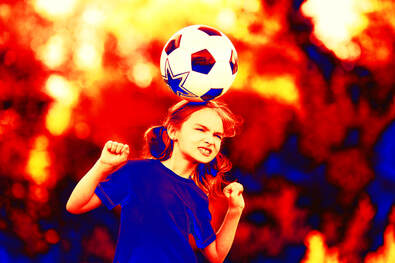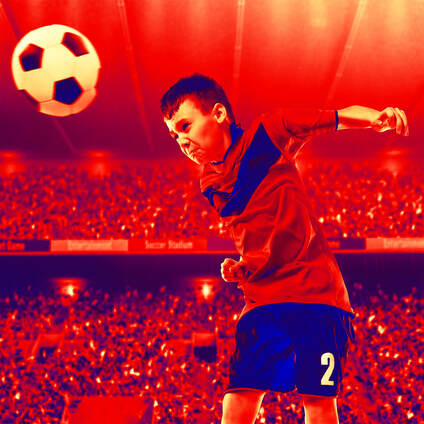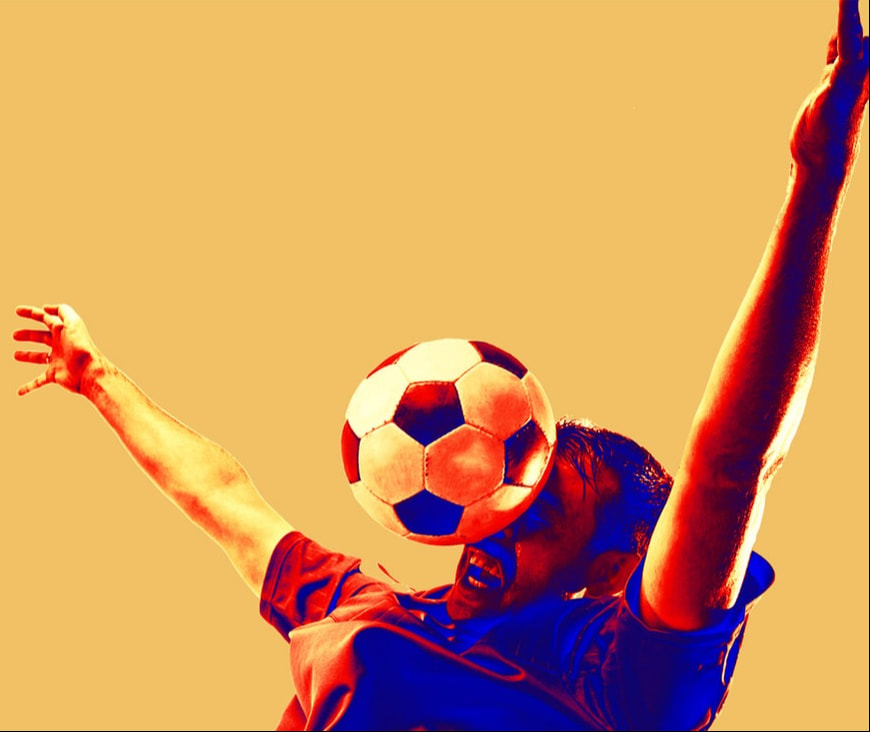because there are very real consequences to the mind and the brain from one misplaced kick, a hard hit to the head from a fall or even a ball, and other serious injuries. Fast forward to 2021 and we certainly have good reason to be concerned about traumatic brain injuries (TBIs) and sports-induced head impacts from soccer. The cohort study, “Association of Field Position and Career Length With Risk of Neurodegenerative Disease in Male Former Professional Soccer Players,” included over 7,600 Scottish former professional soccer players (all males) and more than 23,000 members of the general population as the control group. Individuals were matched by sex, gender, and area socioeconomic status.
“The Beautiful Game” carries risks we haven’t fully discussed or addressed. You may have heard the famous soccer player, Pele, describe his sport as “the beautiful game.” While certainly its acrobatic, almost-choreographed moves can indeed be a thing of amazing beauty, authors of a recent opinion pieceechoed the grave concerns about the many risks we must further investigate to understand how TBIs sustained in soccer can lead to late-life neurodegenerative disease and dementia.  While news in recent years has put American football in the spotlight regarding neurological conditions caused by multiple head injuries, there has been far less focus on the associations inherent to soccer – and remember, players don’t even have the protection of a helmet, which unfortunately has not yet been mandated or even allowed in competitive play. And that’s despite the fact that the sport itself involves moves called heading, which is the act of hitting an air-borne soccer ball into a new direction with one's head. Proponents may say there are ways to reduce risks by only executing this move correctly…but what about all the incorrect times, particularly in regard to youth soccer?  Authors of the opinion article make a very compelling observation about the cohort study as far as its limitations: “the current study increased sensitivity to neurodegenerative disease by examining all available health records for dementia-associated diagnoses. However, qualifying diagnoses did not include mild cognitive impairment, and thus the study likely underestimated early neurodegenerative changes in both former soccer players and control participants.”2 So what becomes most clear is that there are indeed consequences which can develop from playing professional or recreational soccer – but we don’t yet have enough research to fully understand these consequences. And we certainly need to include females in future studies to truly understand how to better protect all genders from adverse neurological events today and in the future. It’s also important to note here that a 2017 study by Northwestern University researchers showed that concussions among female soccer players occur at a higher rate than any other male athletes, and even at that time were on the rise.3 With more young women playing the highly popularized sport now, we can imagine the figures are much greater. If you or your children play soccer regularly, or even on a casual basis, and you have ANY reason to be concerned about a resulting head injury, don’t hesitate to seek medical help at the earliest opportunity. TBIs and concussions can present with a variety of symptoms that include, but are not limited to:
But if it’s appropriate to your health conditions and you’ve consulted your physician, try to pursue an active lifestyle and spend time outdoors for the benefit of your beautiful brain! You’ll find more information at: https://www.suzannegazdamd.com/blog/the-immunological-case-for-staying-active https://www.suzannegazdamd.com/blog/the-integral-neural-connection-between-exercise-and-brain-health https://www.suzannegazdamd.com/blog/the-indoor-generation-is-missing-out-on-vitamin-d In hope and health, Dr. Suzanne Gazda References: 1 Russell ER, Mackay DF, Stewart K, MacLean JA, Pell JP, Stewart W. Association of Field Position and Career Length With Risk of Neurodegenerative Disease in Male Former Professional Soccer Players. JAMA Neurol. 2021;78(9):1057–1063. doi:10.1001/jamaneurol.2021.2403 2 Asken BM, Rabinovici GD. Professional Soccer and Dementia Risk—The Ugly Side of the Beautiful Game. JAMA Neurol. 2021;78(9):1049–1051. doi:10.1001/jamaneurol.2021.2246 3 American Academy of Orthopaedic Surgeons. (2017, March 14). Female soccer players suffer the most concussions in high school sports: Study finds significant increase in overall reported concussions since traumatic brain injury laws enacted. ScienceDaily. Retrieved September 14, 2021 from www.sciencedaily.com/releases/2017/03/170314081533.htm
0 Comments
Your comment will be posted after it is approved.
Leave a Reply. |
AuthorDr. Suzanne Gazda, Integrative Neurology Archives
February 2024
Categories |


 RSS Feed
RSS Feed